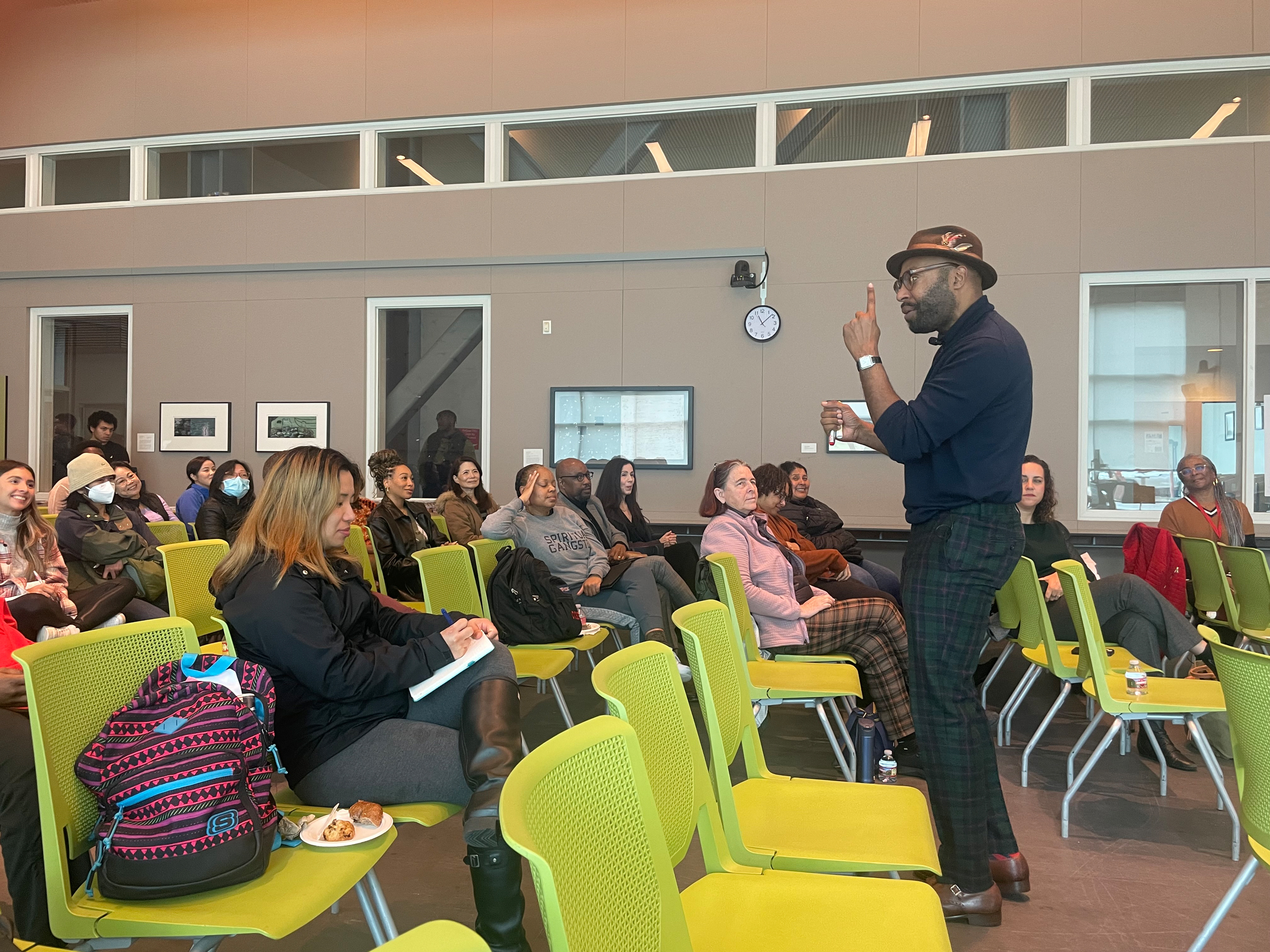Fighting ‘Poor Teaching School Disorder’ and Embracing Diversity: Dr. Christopher Emdin Advocates for Inclusive Education at City College

By Elena Chiaruttini
echiarut@mail.ccsf.edu
The heavy rain expected for Tuesday didn’t stop a hundred people, mostly members of faculty and students of CCSF, from attending a talk followed by a workshop on diversity held at the Multi-Use Building of Ocean campus on Feb. 20.
Chancellor David Martin and Vice Chancellor of Human Resources Clara Starr introduced the Keynote speaker, Dr. Christopher Emdin, the Maxine Greene Chair for Distinguished Contributions to Education, and professor of Science Education at Teachers College, Columbia.
Dr. Emdin immediately captured the audience’s attention with his charisma, enthusiasm and sense of humor.
Despite the high-ranking names of schools on his resume, such as Harvard or Columbia, Dr. Emdin explained his journey began within the public school system of New York City.
The speech initially focused on the importance of public institutions existing, despite the constant challenges. “I always prioritize institutions like this community college, if I think about what they stand for, what they are built upon and what challenges they have faced,” he said.
As noted by Dr. Emdin, the real problem arises when there’s apathy from the students, who can determine an academic environment like this to be doomed. “Even if larger decisions are made, young folks would protest and advocate for their school and education,” he said.
At the same time, students need to feel motivated and supported by their academic environment to fight for it. They also need to feel safe, despite their diversity.
“Diversity for diverse people is just existing,” Dr. Emdin said, adding how the word ‘diversity’ has just become more of a lexicon. “Diversity is about being represented and creating conditions to fully express identities.”
He explored the complexity of the concept of tenacity, which characterizes diverse people as holding on to something so tightly, unwilling to let go.
According to Dr. Emdin, people from challenging backgrounds who have faced adversity due to their diversity, often feel unwelcome because of their identities. As a result, they may develop tenacity, by holding on tight to who they are, even before entering into a new space.
“That’s why you might see black folks for example, at the back of the classroom with a hoodie on,” he said, inviting the faculty members to see deeper than that.
He explained how teachers have the responsibility to recognize tenacity and understand how to apply existing tenacity to achieve academic success. Even if this process might be unpleasant, uncomfortable and encounter resistance at the beginning.
Dr. Emdin mentioned how marginalized people might suffer from post-traumatic stress disorder, highlighting how schools have frequently been sources of trauma for them.
According to Dr. Emdin, people with challenging pasts are gifted with more resilience. He encourages students to use that as a power, acknowledge these skills and incorporate them as advantages.
Oftentimes, students are not able to heal from their past experiences as they might find the same dated pedagogy, textbooks and approaches they encountered before. “PTSD can also be ‘Poor Teaching School Disorder,’” he said, receiving approval from the listeners.
“Honor your blackness, your brownness, your ‘immigrantness’, your indigeneity,” Dr. Emdin said. “…and then merge into the academics.”
